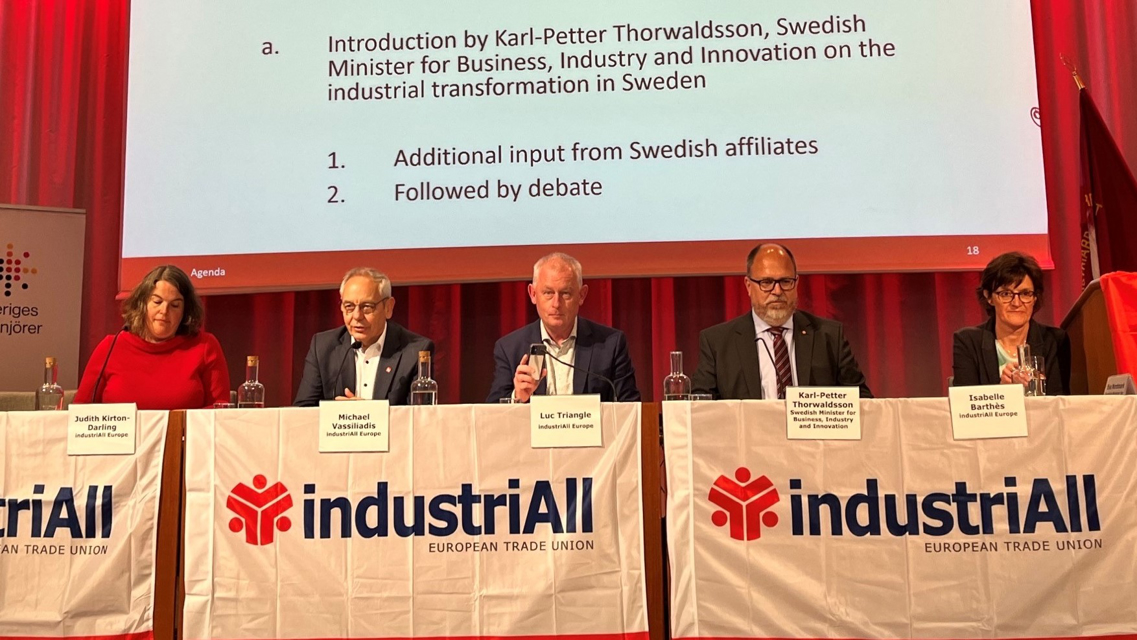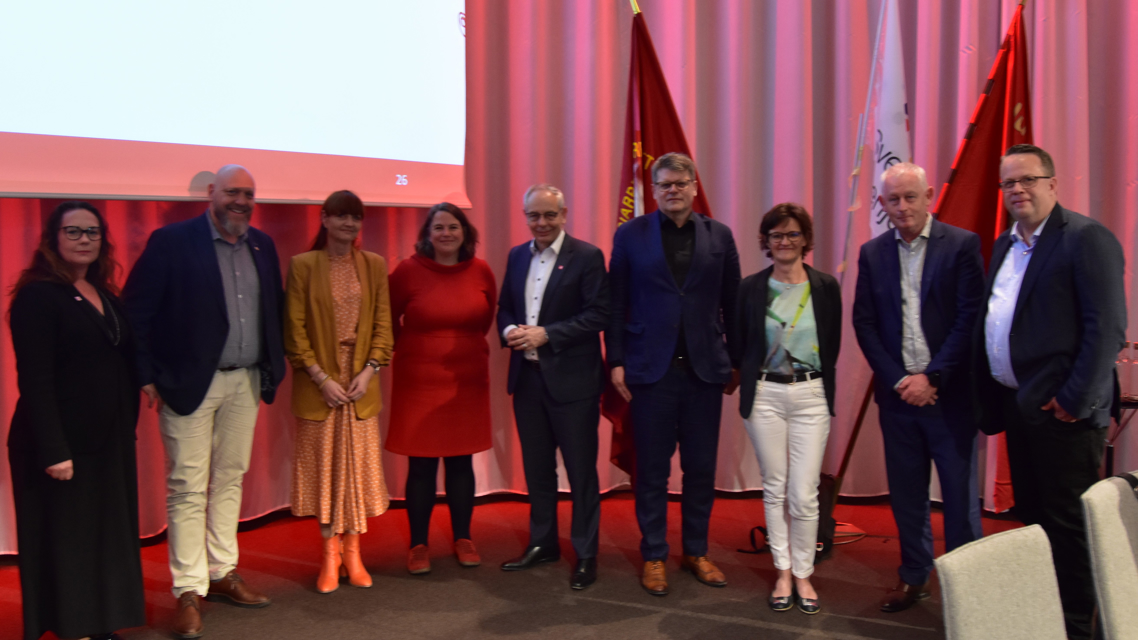IndustriAll Europe’s Executive Committee had the privilege of hosting Swedish Industry Minister Karl-Petter Thorwaldsson and Roger Mörtvik, State Secretary to the Minister for Employment and Gender Equality at its meeting yesterday, 24 May 2022.
Karl-Petter Thorwaldsson, former president of the Swedish Trade Union Confederation LO, gave an inspiring account of the industrial revolution currently taking place in Sweden: a green revolution that has seen large amounts of investment in fossil-free industries in the North of Sweden, creating thousands of jobs in a region that formerly suffered the highest unemployment in the country.
Today, the region has the lowest employment levels in Sweden and is leading the country on its path to become fossil fuel free by 2045. The development started with pilot projects to produce decarbonised steel. Sponge iron produced using green hydrogen is replacing iron ore pellets, opening the path for a fossil-free iron and steel industry.
Another developing green industry in Sweden’s North is the battery industry. The industry presently employs some 1000 metalworkersand a further 5000 new jobs are expected to be created. Demand for batteries is huge due to the electrification of mobility, and Sweden plans to become a leader in battery cell production.
The forest and paper industry has suffered from falling demand of paper products and is now also experiencing a green revival. Pulp, in connection with hydrogen, is nowadays used to produce green fuels for aviation. Finally, the textile sector is investing in the recycling of its products, e.g. jeans.
The green revolution reaches new areas and new products all the time. What has not changed is the important role of industrial relations and collective bargaining in this success story. The new activities are all covered by collective bargaining. If every new job in the green revolution was created in a company covered by a collective agreement, collective bargaining coverage would actually increase, given the employment growth.
Karl-Petter Thorwaldsson is convinced that the green revolution can slow the development of far-right movements. As jobs are returning to the North of Sweden and people no longer fear for their livelihood, the far right is receding.
Finally, the Minister expressed outrage that some countries in Eastern Europe are not involving unions in planning and shaping the transition. In his view, these countries should be excluded from Just Transition funding!
Marie Nielsen, President of the IF Metall union, agreed that the new technologies help maintain jobs, secure salaries, increase competitiveness and keep production in the country. She welcomed the fact that some companies are moving their production back to Sweden. However, investments will not automatically lead to new jobs everywhere and not all jobs of the old industries will be saved. For the Swedish trade unions therefore, upskilling and reskilling of their members is high on the agenda as well as finding new jobs. They want to ensure that all workers are part of the green revolution, with skills ready for the new jobs. Organising new members, negotiating good agreements with higher salaries and better working conditions are a priority.
The Swedish experience is undoubtedly linked to a social model and labour market that is based on strong and independent social partners, as well as tripartism. Roger Mörtvik holds that this gives Sweden a competitive advantage in global industry, particularly in times of transition such as the green and digital transformation of the economy. The upcoming training law, the result of social partner negotiations, is one illustration of shaping a Just Transition. The law will provide finance for workers' training and support to facilitate job-to-job transitions.
The State Secretary explained that the social democratic government has made efforts to reinforce this social model and to support social partners. In his view, social dialogue and collective bargaining are the foundation of a well-functioning economy and labour market. In the upcoming Swedish presidency of the EU in Spring 2023, strengthening the European social model and social partnership across Europe will be a key priority.
Contact: Andrea Husen-Bradley (press and communication)

.jpg?width=1200&height=640&rmode=max&format=jpg&quality=100)
